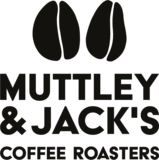Denna webbplats är skyddad av reCAPTCHA och Googles integritetspolicy . Användarvillkor gäller.
I koppen: Toner av svarta vinbär och citrus. Bra syra, välbalanserat med mycket sötma och en eftersmak av nypon.
Koppning: 87 poäng
Munkänsla: Silkeslen, rund
Botanisk variant: SL28, SL34
Process: Tvättad (Fully Washed)
Producent: Karani Factory
Växthöjd: 1700 -1800 möh
Region: Kirinyaga
Background:
This coffee was produced from trees of the admired heirloom SL28 and SL34 varieties of Arabica, and processed at the Karani wet mill. Despite challenges ranging from unclear government coffee policy and urban encroachment on prime coffee lands to chronically unstable weather, the famed Kenya coffee auction system and its participating cooperatives continue to produce some of the world’s most elegant and distinctive coffees. AA is the highest grade of Kenya coffee based on bean size and fewest physical imperfections.
Karani is located in Kirinyaga County in the Central highlands of Kenya. It is one of 10 factories that form the Kabare Cooperative Society.
The Karani factory is a set in a beautiful, fertile and forested location and is surrounded by thousands of smallholder subsistence farmers who grow coffee as a cash crop alongside potatoes, bananas, mangoes, avocados and some livestock - usually a cow or two for diary production and chickens for eggs and meat. The average altitude of these smallholdings is approximately 1,500 MASL, a factor which contributes to the fine flavour of the coffee. The growers have the advantage of deep and rich soils that were created from the ash of the extinct volcano – Mount Kenya.
The Karani factory, which was established in 1968, is managed by David Mwendia who has held that position since 2008. David is focused on producing high quality coffee so is strict with deliveries by smallholders to the factory, allowing only very ripe, red cherry to be processed. Farmers must tip their cherries onto a tarpaulin sheet for inspection and further sorting before the coffee can be weighed and submitted to the pulper hoppers.


